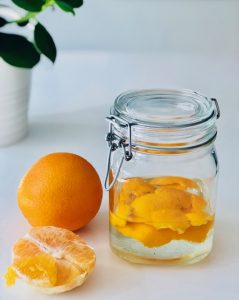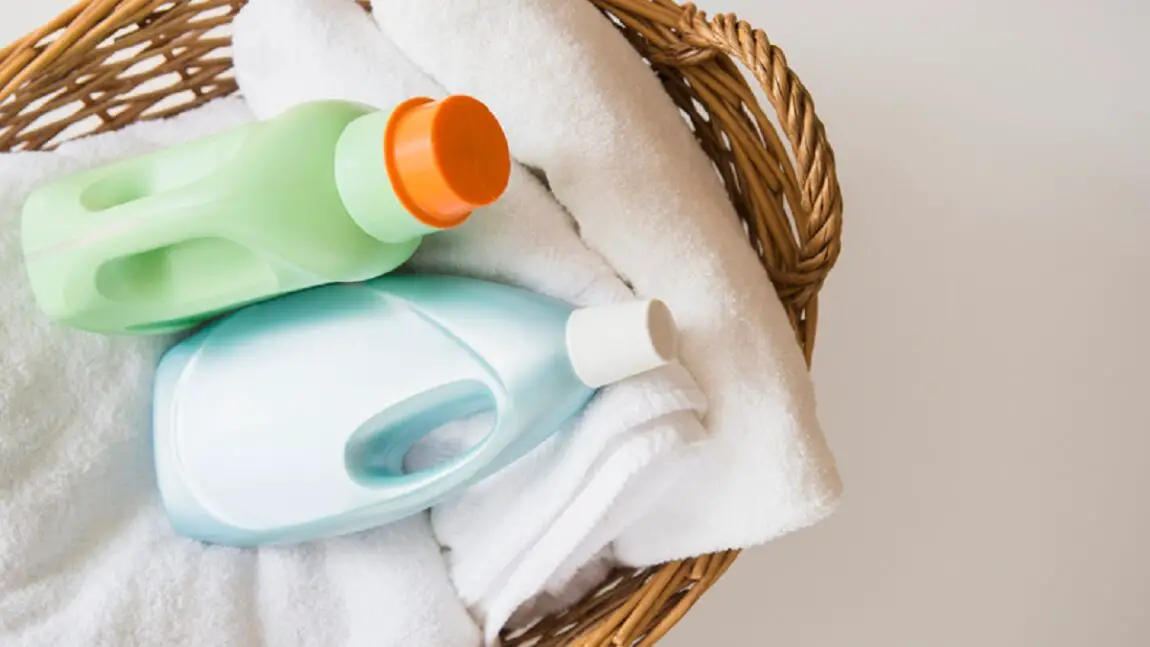Make Your Own Detergent Up To 18 Times Cheaper!
Three million tons of detergents are produced per year in USA alone. The components are not, or only to a limited extent, biodegradable and accumulate in surface water, soil and fish. Ordinary laundry detergents largely consist of petrochemical raw materials, based on petroleum.
Optical whiteners do nothing to clean the textile, but they can cause skin irritations. Solvents such as paradichlorobenzene and phenol are toxic, and formaldehyde preservatives are carcinogenic. Synthetic perfume can also have irritating properties .
However it is not so difficult and time consuming to z eleven ecological cleaning products to make without irritants. Every two months I make five liters of detergent for color wax and five liters of detergent for white laundry. I spend about fifteen minutes on that.
Another thing about fabric softeners . They reduce the absorbency of towels by 30% and are of no use with synthetic clothing. Fabric softeners leave a film on the fibers which then gives a soft feel. This chemical film and the synthetic perfumes are in constant contact with your skin when you wear clothes, sleep in your sheets and use towels.
“So your skin constantly absorbs these chemicals.”
Extra tip for fabric softener:
Put a dash of household vinegar in the softener drawer of the washing machine, this will make the laundry a lot softer and also descale the machine. The smell of vinegar disappears completely when the wax is dry. You can also add a few drops of essential oil to the vinegar for a wonderfully natural scent.
If you’re attached to fabric softener, give this blissfully soft fabric softener recipe a try:
Requirements: glass jar 1 l.
Ingredients:
- 2 cups of household vinegar (1 cup = 257 ml)
- 2 cups of water
- 30 ml of vegetable glycerine
- 20 drops of mandarin, or lemongrass, or lavender aromatic oil.
You put half a cup of this fabric softener per wash in the slot of your washing machine especially for the fabric softener (with the flower).
OR: You can put a few flannel or terry cloths in the jar so that they are impregnated with the fabric softener. Add a cloth to the laundry in the dryer.
Making your own detergent is not only healthier for your body and the environment, but also for your budget. It is up to 18 times cheaper than a commercial detergent.
The recipe for 5 liters of liquid detergent:
-80 grams of grated Marseille soap
-5 liters of water
For the white wax, add another 40 grams of sodium bicarbonate to this recipe after cooking and off the heat.
Let the soap cool completely and mix if necessary with a whisk or hand blender. Watch the video below then it is certainly clear .
Pour into a water bottle or other bottles.
You take 200 ml (a small cup) per wash and add 10 to 20 drops of lemon, lavender or lemongrass essential oil.
Do this in the slide of your washing machine, preferably not in the washing ball with the clothes.
Is making detergent bad for your washing machine?
No, it is not bad for your machine. You should only not exceed the amount of 200 ml detergent per wash and also put the detergent together with the essential oil in the slide and not in a washing ball in the machine. This is because the essential oil could stain this way.
The nine most frequently asked questions about making detergent yourself:
1. What is the difference between baking soda and sodium bicarbonate ?
Soda is sodium carbonate, it looks like crushed ice. It is also sometimes called household soda. It is suitable for unblocking, degreasing the toilet, scrubbing caked pots and pans, etc. Sodium bicarbonate is also called baking soda. It is less aggressive than the sodium carbonate. You can also use this to clean.
2. the soap does not get thick , am I doing something wrong?
Whether the soap becomes thick during cooling or not has to do with whether or not there is palm oil in the soap. Palm oil ensures that the soap thickens, this does not affect the washing power.
3. Can I put the grated soap directly into the washing machine without making detergent?
No, the soap flakes make too much foam and can hide your washing machine inside. So you make better detergent of the soap with water.
4. Which essential oils can I best use for washing?
Homemade detergent has no odor, so it is nice to add a nice scent. This can be done with essential oil. Use the cheaper essential oils such as lavender, lemongrass, mandarin,…. Please note because undiluted essential oil can cause stains on direct contact with clothing, so put it with the detergent in the drawer of the washing machine, not in the washing ball in the machine. About 20 drops of essential oil per wash is sufficient. It is cheaper to buy a 100 ml bottle of essential oil. Essential oil evaporates, so it is best to use it per wash.
5. Should I use fabric softener?
This is personal desire and may also depend on how hard the water is in your city. A commercial fabric softener reduces the absorption of towels by 30% because it covers the fibers. Fabric softener makes no sense with synthetic clothing. A dash of vinegar in the fabric softener slide is enough to make the water less hard.

6. I think the laundry still smells a bit like vinegar when I use it as a fabric softener, what can I do about it?
You can infuse your vinegar with the peels of tangerines and oranges. Mind you, only use the skin, no pulp. Use household vinegar, not vinegar for food.
7. How much detergent should I use per wash?
The amount of a small cup or cup is sufficient.
8. Is the detergent allowed in the washing ball or in the detergent slide?
Because you add 20 drops of essential oil to the detergent per wash, it is best to pour this into the slide of your detergent. In the wash bulb, the essential oil can stain your clothes.
9. Does this soap wash as clean as a commercial detergent?
The detergent from Marseille soap and Aleppo soap is gentle on your skin and also harmless to nature, so this soap is less aggressive than commercial soap. Normally soiled laundry such as clothing, bath towels, sheets, this detergent cleans well. For heavily soiled clothing such as football clothing with grass and mud stains, work clothing or other stains, it is necessary to coat the stains with black soap or stain soap.
I always do that with shirt collars, so these become spotless again. I wash kitchen towels that are very dirty at 90 ° C with Sonett Bleach. I wash white sheets with the white laundry detergent (with sodium bicarbonate) and two scoops of Sonett bleach. Sonett Bleaching Complex is an organic bleaching and bleaching agent.

